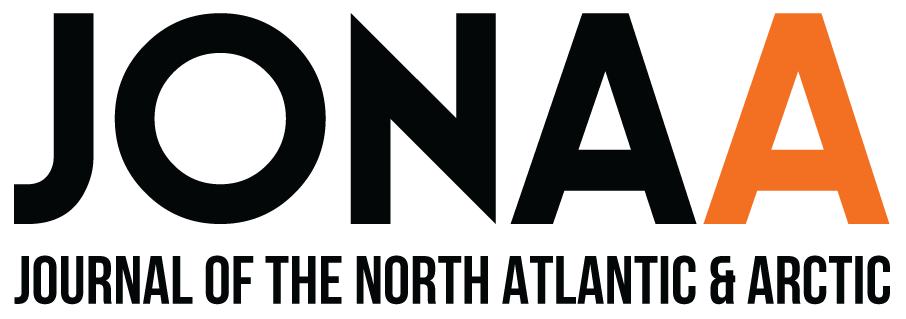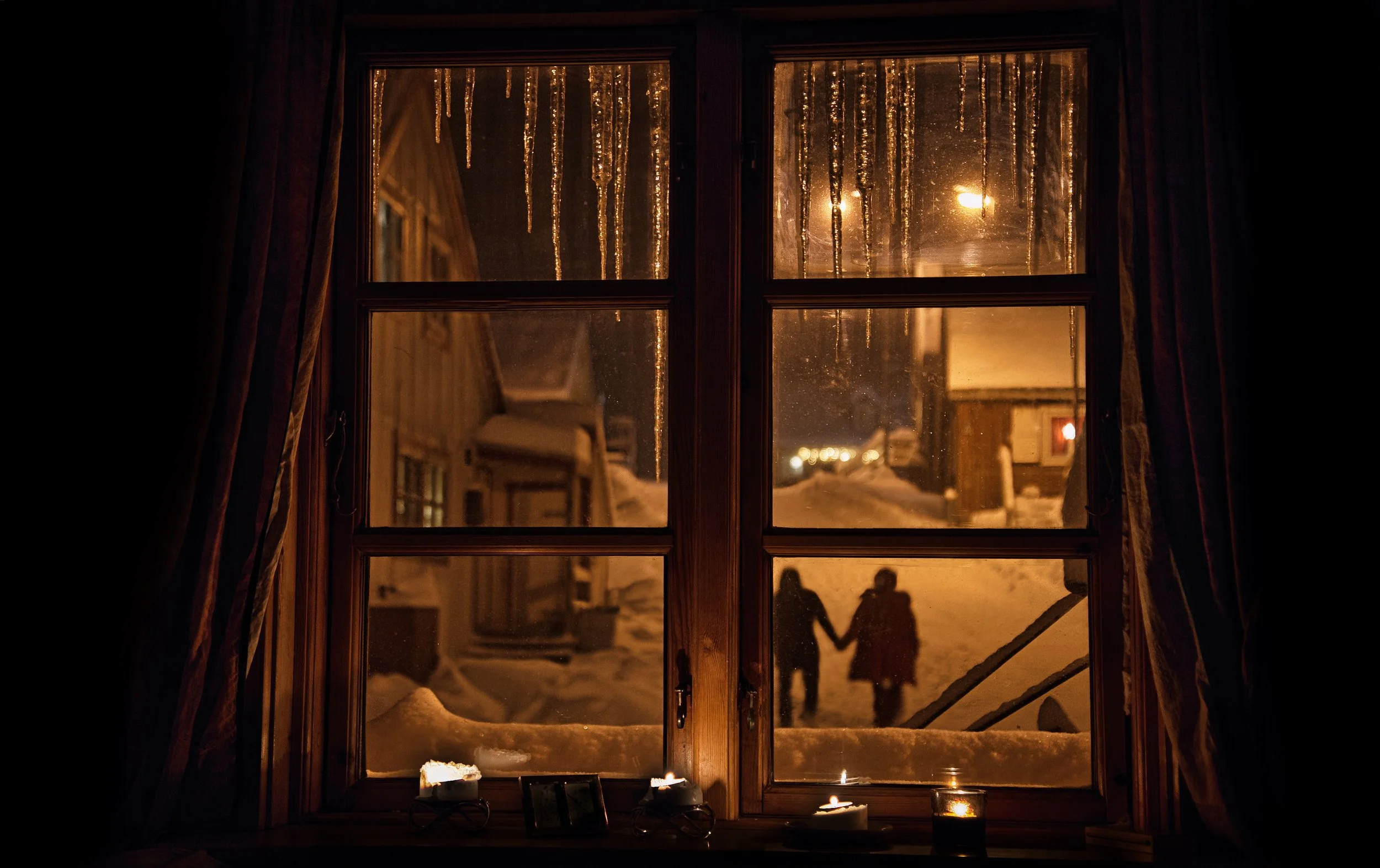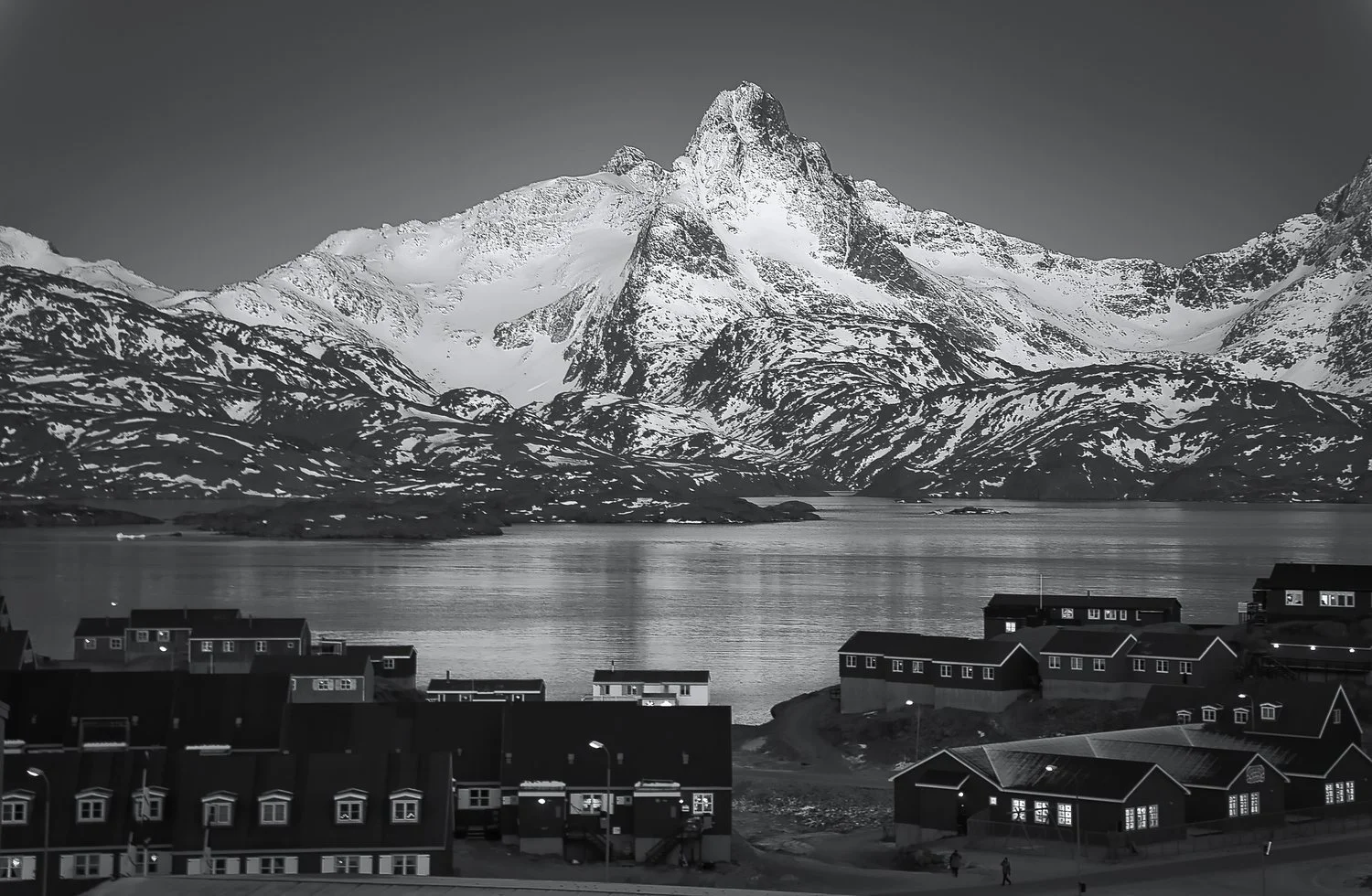So, Should We Expect More Apologies From Denmark?
OPINON
Author:
Inga Dóra Gudmundsdottir Markussen
Photographs:
Angu Motzfeldt
December 2020
Tuesday, December 8th 2020 will go down in Greenland's history as a notable date. It is the day when the Prime Minister of Denmark, Mette Frederiksen, delivered a long-awaited apology for a dark chapter in Denmark's colonial history. That dark chapter began in 1951, with a political decision by Danish authorities to do a social experiment “with the best intentions”, as the Danes put it.
The experiment - Eksperimentet, as it is commonly referred to in Greenland - meant that 22 Greenlandic children were selected and subjected to an experiment that would become the ruling element of their whole lives. An experiment that despite “all good intentions” was to turn out painfully wrong in every way possible. The children lost their Greenlandic identity and gained scars on their souls that would never heal. Through Eksperimentet they were exposed to the worst and most painful situation any child can face; the feeling of not belonging to anyone. The feeling of having one’s feet in two colossally different worlds and not belonging to either. Deprived of parents and family. Deprived of a compass in life.
Deprived of parents and family. Deprived of a compass in life. JONAA©Angu Motzfeldt
When a nation has waited
The 22 children who were selected and sent to Denmark, 4,000 kilometers away from their families and country, were relocated for the purpose of making them become Danish-speaking and thinking individuals, assimilated to Danish values and ways of life. Perhaps the goal was to create a Danish-thinking Greenlandic elite for a future Greenland, no doubt with the understanding that Greenlandic culture and way of life was not good enough for them; thus that the culture was not good enough for those belonging to it at that time - the Greenlandic people, Inuit.
When a nation has waited some decades for an apology, a part of its truthfulness, impact and sincerity derives from the form in which it is delivered. The Danish Prime Minister's apology came in the form of a brief letter on behalf of the Danish State. A brief letter which she had read out in the Danish Parliament before question time in a parliament session.
The struggle for an apology to the 22 children and the desire for an investigation of the whole Eksperimentet process is an issue raised by many of Greenland's members in the Danish Parliament over the years. And has been relentlessly fought for by survivors like Helene Thiesen, who wrote the book For diligence and good behavior, a biographical account of this social experiment. Not to forget the late Tine Bryld, a Danish social worker, radio host and author, who wrote a book titled With the Best of Intentions, a book which raised awareness from the public. These two women, countless Greenlandic politicians and many others have all played a role in the long process leading to the apology we finally saw offered, almost 70 years after the first 15 children arrived in Copenhagen in June 1951.
One sad side to this story is that only six of the Eksperiment’s 22 children lived to witness the moment, when they finally got an official apology from the Danish state. Hopefully that moment brought some relief to the trauma, some calm to their lives and some means of reconciling with the past.
But how much stronger it would have been, had the apology been offered in the presence of these six survivors. Instead of having it read out briefly in the same parliament chambers where the decision that traumatized their lives was originally made - and in the same country where the Eksperiment took place.
As in Canada
When the Canadian Prime Minister, Justin Trudeau, gave a heartfelt apology standing in front of rolling cameras and an Inuit crowd in Labrador some three years ago, I remember thinking "I wish Denmark did the same”. Mr. Trudeau stood there on Inuit land and apologized directly to the Inuit for wrongdoings on behalf of Canada.
He was there in person to say a sincere Sorry; Sorry for Canada's wrongful treatment of Inuit children as part of an assimilation of indigenous peoples; Sorry, for the state sending some thousands of children to boarding schools in Canada, far away from their origins, their families and culture; Sorry for these children experiencing terrible events and many becoming traumatized for life. All in the name of “their best interest”, as the official purpose of relocating the Inuit children far away from their culture, people and homes, was to give them “better opportunities, better jobs and a better life”.
The parents were promised that their children would be taken care of and that they would be safe in the boarding schools. Only, that did not happen. The children were punished for speaking their language, banned from practicing their culture, isolated from their families and communities and deprived of their Inuit identity. They were taught to feel irrelevant, ashamed of who they were and where they came from.
Trudeau’s speech leading up to the apology was long and emotional: ”The treatment of Indigenous children in residential schools is a dark and shameful chapter in our country's history. For all of you — we are sincerely sorry”. And he went on to say: "Saying that we are sorry today is not enough. It will not undo the harm that was done to you. It will not bring back the languages and traditions you lost. It will not take away the isolation and vulnerability you felt when separated from your families, communities and cultures”.
Canada’s apology was offered and received face to face with representatives of the Inuit and in the presence of many who had experienced this nightmare as children. It was a strong action taken by the head of the country, a distinguished event that had a deep effect in the whole reconciliation process.
Again, I found myself thinking that I wished Denmark would do the same, when already last year the Canadian government gave another apology in Nunavut's capital, Iqaluit. This time, Canada’s official apology was offered for wrongful treatment of Canadian Inuit during the tuberculosis epidemic of the mid-20th century, a time when Inuit people were marked, degraded and made to wear leather identification tags - yes dog-tags - because their names were too difficult for white Canadians to bother learning; a time when children were punished for speaking their Inuit language; Inuit hunters had their sled dogs killed by government officials and Inuit families were forced from their homes to assert Canadian sovereignty.
Again, the apology was respectfully offered on Inuit ground and directly to representatives of the Inuit of Nunavut. Like earlier in Labrador, it was done in a ceremony that was meaningful to the people who were being asked to accept the apology, asked to even find it in their hearts to forgive.
So in a span of roughly three years we've witnessed the Canadian government coming twice to the Canadian Inuit with official apologies that deal with past wrongdoings of the government towards Inuit and indigenous peoples.
Of course, everything happens for a reason and the reason for this happening may be largely due to the fact that organizations in Inuit-Canada, like the First Nations-Canada and Métis-Canada, have been relentless in their activity and fight for recognition and rights of Canada’s indigenous - the first nations of the land. Eventually the movement, awareness and fight led by these organizations resulted in the much-discussed debate on decolonization.
It is not a taboo to articulate the development that indigenous peoples of Canada have had to endure and still endure to this day. Here, the Native Lives Matter movement, like the Black Lives Matter movement, plays a major role. They have helped to advance the debate on the colonization of countries, oppression, racism and discrimination. Apologies must be seen in the aftermath of a pre-match. The struggle for recognition and the recognition of wrongdoing.
So, should we expect more apologies from Denmark?
Well, one can only wonder. The story of Eksperimentet is only one of many dark chapters in the book of Greenlandic-Danish relations. Is the apology from the Danish Prime Minister that Tuesday the beginning of a reconciliation with the past? There are indications that the Social Democratic government in Denmark has the courage to look at the wrongful acts that have been committed, even though they happened in a different historical time. If this is the beginning of more excuses, then there are more dark chapters to look at.
Such as forced relocations where the lives, wellbeing and culture of the Greenlandic Inuit was easily brushed aside by various political agendas from Denmark. In Qullissat on the Disko Island, some 1,100 inhabitants where forced to relocate in connection with the closure of a coal mine in 1972. In 1925 some 87 inhabitants from Tasiilaq (Ammassalik) in East-Greenland were relocated to Ittoqqortoormiit (Scoresbysund) 844 kilometers further north, in relation with Denmark's sovereignty claim. That relocation was one of the main reasons why Norway did not get the right to Northeast Greenland at the International Court of Justice in The Hague in 1933.
We must remember and recognize, that Inuit people were sent away to be settlers, all to defend the Danish notion of ownership of vast tracts of land that no one inhabited. Even the Inuit, who had skillfully survived at the fringes of the possible, did not inhabit these lands. That speaks its own volume.
There is also a growing awareness about adoption cases. Several hundred Greenlandic children were adopted by Danish families through the 50’s, 60’s and 70’s, many on highly dubious basis of agreement. That is yet another chapter in the book of Greenlandic-Danish relations that needs to be uncovered.
Then there is a need for an apology in connection with the “legally fatherless” children born before June 1st 1963 in West Greenland and before July 1st 1974 in North and East Greenland. Although the legally fatherless now have the right to a father (I know, it sounds crazy), an apology for depriving them of their rights to a parent in the past is still absent.
What can we learn from Canada?
Greenlandic people are People under international law. But even though we have come a long way in the hierarchy of law as far as international law is concerned, and are not only labelled as indigenous peoples and subjects, we must not forget that our parents, grandparents, great-grandparents and further back ancestors lived through the colonial era for better or worse.
With new order, the G-50 and G-60 policies had the goal, that the Danish state, with the acceptance of the then National Council (Landsråd) in Greenland, was to bring Greenland on par with the Danish standard of living.
As societal structures changed, we became serious spectators of our own development. The Greenlanders were to be assimilated through a "Danification" followed by a "Greenlandification", as a counter-reaction to the first wave of rootlessness. A polarization that left many confused. We must know our history to understand our present. The whole story, and as true as possible.
Back to the apology to the children, here 70 years after the failed attempt to deprive people of their own leanings, language and culture and with severe personal consequences as a result. With experienced trauma as a result of condescension, discrimination, stigmatization, tabooing, exclusion and painful ignorance.
Not everything is resolved in Canada because the government managed to apologize for some of their country’s dark chapters. But I dare say that the action there has made it is easier and less painful to talk about the common past. And that is exactly what we in Greenland need; to be better at talking to others about our personal challenges; to have the conversation in our society that helps us: Understand the past, take responsibility for the present and work for a better future.
Interestingly that is also the title of the report that the Greenland Reconciliation Commission gave to Naalakkersuisut, the Greenland Government in 2017. A Reconciliation Commission that the Prime minister of the former Social Democratic-led government in Denmark, Helle Thorning-Schmidt dismissed in 2013 by saying; "We do not need reconciliation, but I have full respect for the fact that it is a discussion that concerns the Greenlandic people." A sort of a nonsense notion regarding Danes as the betterment of humans outside their own Realm at the time.
If the commonwealth (Greenland, Faroe Islands and Denmark) is to consist as equal partners with respect for each other now, almost 300 years after the Danish-Norwegian missionary Hans Egede established the Colony of Greenland in 1721, it is perhaps an idea for Denmark to take a closer look at the several dark chapters in its history as a colonial power. Eksperementet is just one of many.
I know that we in Greenland need to look inwards and take our responsibility for some of the development of our society. It helps when Denmark says "Sorry" for the part where Denmark must bear its share of responsibility, even if one thinks it was "with the best intension", and therefore walkable for some. But remember: “The best intention” only makes sense, if it means that it is not acceptable for our time and our past. That Inuit way of life, culture and language are not bullshit to you as an outsider.
I sincerely hope that you, who have fought for an official apology from the Danish State in connection with Eksperementet, feel that the apology was sincere and offered with a deep feeling. But at the end of the day: The apology was given in their own sphere and detached from the people it was intended for, the people it should all be about. ▢
“One sad side to this story is that only six of the Experiment’s 22 children lived to witness the moment when they finally got an official apology from the Danish state. Hopefully that moment brought some relief to the trauma, some calm to their lives and some means of reconciling with the past.
But how much stronger it would have been, had the apology been offered in the presence of these six survivors.”
Inga Dora Gudmundsdottir Markussen is a contributing member of the JONAA Advisory Board. She is a Greenlandic politician, a former Secretary general of the West Nordic Council and is now working with Communications at Royal Greenland. Opinions expressed in the article above are her own and written from a personal point of view.
Angu Motzfeldt is a Greenlandic photographer, visual artist and well known musician, based in Nuuk. He is a founding member of the JONAA photojournalistic team.
Disclaimer: Opinion articles published in JONAA are written by a selected group of people, based throughout our circumpolar High North region - or people based elsewhere in the world, but with a particularly valuable and informed perspective on High North and Arctic affairs and matters. The primary purpose of the Opinion series is to inform and shed light on diverse matters of our region, its people and environment from personal perspectives of the authors. Views, thoughts and opinions expressed in Opinion articles belong solely to the authors personally and do not reflect the views or opinions of JONAA, Journal of the North Atlantic & Arctic, or its editors, nor the views or opinions of the authors in any representative capacity unless expressly stated to the contrary. Information contained in our published Opinion series articles are believed to be reliable, but JONAA does not verify for accuracy or completeness any information or views put forth in Opinion articles and accepts neither responsibility nor liability for the content of Opinion articles. 2020©All rights reserved. Readers are permitted to share links to all JONAA articles & photo stories in their entirety on social media, but no part of any JONAA published work may be reproduced, stored in a retrieval system, or transmitted in any form or by any means, electronic, mechanical, photocopying, recording, or otherwise, without written permission from the publisher.



















